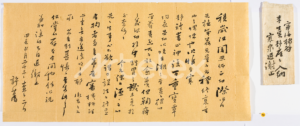Heo Wi (許蔿, 1854 – 1908) was a distinguished Korean independence activist and a commander of the Righteous Army during the late Joseon Dynasty.
In 1905, Heo distributed manifestos condemning Japan’s atrocities, for which he was imprisoned for four months. Upon his release, he retreated to Ji-rae, Gimcheon, but in 1907, when Emperor Gojong was forced to abdicate and the Korean military was disbanded, Heo once again raised a Righteous Army in Yeoncheon, Gyeonggi Province. He became one of the key leaders of the 13 Provincial Allied Righteous Army, where he commanded a 300-strong vanguard in a failed attempt to attack the Japanese headquarters in Seoul. Despite the setback, Heo continued to lead guerilla operations.
Despite multiple attempts by the Japanese to entice him with high-ranking positions, including Governor and Minister of the Interior, Heo remained steadfast in his resistance. Known for his unyielding spirit, he persistently harassed the Japanese forces, even as they sought to forcibly annex Korea.
In May 1908, Heo Wi was captured in Yeoncheon during a surprise attack by Japanese military police. He was imprisoned in Seodaemun Prison, where he became the first prisoner to be executed by hanging on September 27, 1908, becoming a martyr for the Korean independence movement.
Posthumously, the Republic of Korea awarded him the Order of Merit for National Foundation (Presidential Medal) in 1962 to honor his contributions. His legacy is preserved in various landmarks, including Wangsan-ro in Seoul, named after his pen name, and a memorial park in Gumi dedicated to his life and sacrifices.

